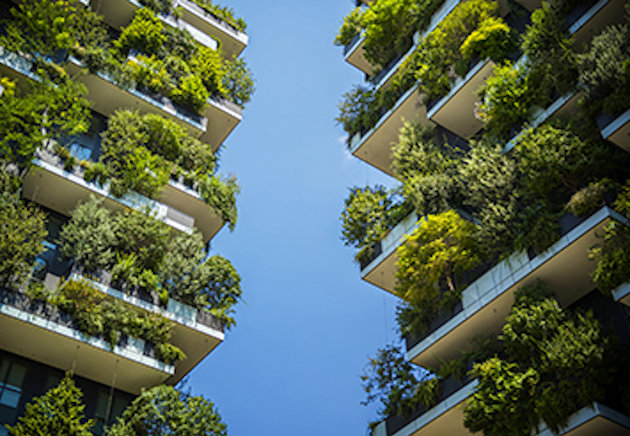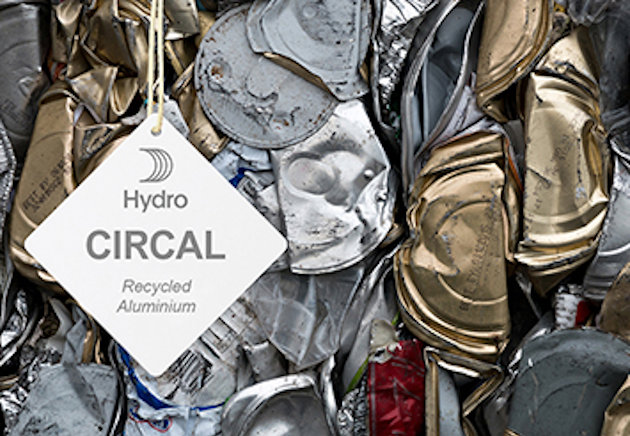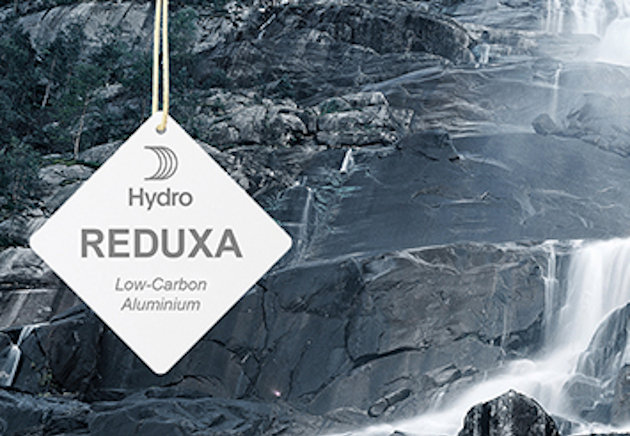'I hope the industry discovers the untapped potential of recycled aluminium'
Germany’s first building with a facade made of recycled end-of-life aluminium is about to see the light of day. Mercator One is a shining example of sustainability, created by Hamburg-based Hadi Teherani Architects.

“With Mercator One we’ll show that it’s possible to make an office building with a facade made entirely of recycled aluminium. It is the first of its kind in Germany and I hope this project can help lead the way and inspire other architects to use this sustainable material,” says Bernd Muley of Hadi Teherani Architects.
The material they chose for the facade of Mercator One is Hydro CIRCAL 75R, which consists of a minimum of 75% recycled end-of-life aluminium. This could be aluminium from demolished building projects, food and drink containers or even cars. Material that has been a product used by a consumer before and put back into the cycle.
Muley is a Senior Architect at Hadi Teherani Architects, whose work is characterized by a holistic urban approach and top class design. Their projects carry sustainability evaluation standards such as "Green Building" and green building certifications such as DGNB, LEED and BREAAM.
A consideration for longevity is the foundation upon which their buildings are designed. They are especially known for landmark buildings such as the office buildings The Dancing Towers, the Dockland Building and the Berliner Bogen in Hamburg, the Zayed University and the hotel and residential building The Oyster in Abu Dhabi, the Twin Towers in Dubai and the luxury residential tower Lodha Altamount in India.
Cradle to Cradle
“I have always cared a lot about the environmental aspect,” says Muley, who has worked at Hadi Teherani Architects for 20 years.
“I have the Cradle to Cradle (C2C) principle in mind when I work, which means that when I choose materials for a building I think of – in addition to the architectural aspects – where the material comes from, how efficiently it is produced and what happens to the material after the lifetime of that specific building. Recycled aluminium is great in this regard. It is one of the best solutions at the moment when building a facade, as it is highly recyclable and can be used again and again,” says Muley.
The Cradle to Cradle principle can be defined as a design and production process that is sustainable, where nothing goes to waste. Towards the end of the product’s life span, it can be recycled or returned to the earth completely safe, nontoxic and biodegradable. C2C methodology builds on the concept that “waste = food,” meaning that the materials can be used again in a new product cycle.
“At Hadi Teherani Architects, we always try to fit those ideas into our buildings, and as more people in the industry do, buildings will eventually improve their sustainable performance. Creating aluminium requires a lot of energy, but its lifespan can be long, if recycled several times,” Muley says.
“I also try to find materials that can be used in their purest form, so that we know what they consist of. Materials such as wood, stone, concrete, steel, glass and aluminium are great, and when choosing a pure mix of them for a complete concept it gives a more radical appearance. The exclusion of composite materials also helps when separating materials at the end of the life cycle of a building,” says Muley.
“Recycled aluminium has the same strength as new, is easy to maintain and highly sustainable, and requires only 5% of the energy which is used for the production of new aluminium.”

Discovering new solutions
The decision to use recycled aluminium came about after Muley had a chance meeting with Peter Hemmert and Thomas Staiger from Hydro during the Bau Fair in Munich, the world's leading trade fair for architecture and building industries, in January 2019. They started talking and shared ideas about buildings and facades. Muley was in the process of developing the construction plans for Mercator One at that time, and Hemmert explained the qualities of their new material Hydro CIRCAL 75R.
“This is why it is important to meet others in the industry – we discover new solutions. This material is both sustainable and easy to maintain,” says Muley.
He based his decision on several aspects: Does the recycled material have the same quality as the newly produced one? Could they deliver the material in time? Does it have a competitive price point? Would the facade builder approve? And would he get his client onboard?
“When all these criteria were met and the client and the builders were onboard, I was ready to go for it. Now the building is nearly finished, and it looks just the same as if we had used brand new aluminium. The process and support from Hydro has been great. There is an unused potential for using recycled aluminium, especially in office buildings or high-rises.”

Great responsibility
“Our office has existed for almost 30 years, and from the beginning we have been interested in improving the way we build and always look for sustainable and green solutions. We work on big projects for important clients, and we receive a lot of interest in our projects. Therefore, it’s our responsibility to always do things better,” says Muley, who is a certified auditor through the German Sustainable Building Council (DGNB). DGNB is one of Europe's biggest networks for sustainable building, with an aim to promote climate friendly change in the building and property market.
“Every day we should ask ourselves: What can we do better? In our case, we can improve the way we build!”
At Hydro, we passionately believe in a sustainable future. In this series of articles, we talk with industry leaders and professionals and explore the theme “sustainable construction,” and how we can create the future of building and construction using technological innovations.
 A sustainable building industry A sustainable building industry |
 Hydro recycled aluminium Hydro recycled aluminium |
 Hydro low carbon aluminium Hydro low carbon aluminium |
